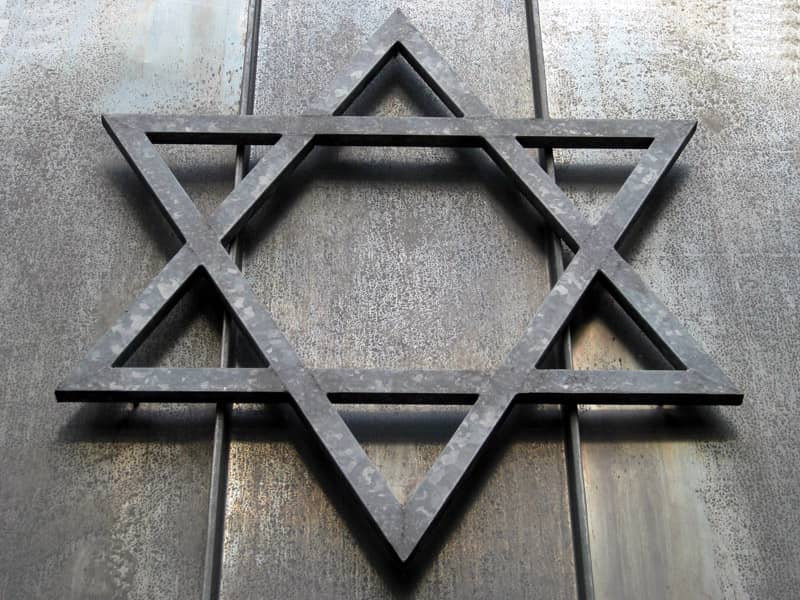In the movie "Groundhog Day," Bill Murray is forced to live the same day over and over until he gets it right. Meanwhile, his life is on hold; it does not move forward. When he finally breaks the old pattern, he is reborn, free to enjoy and appreciate life anew.
In a way, Rosh Hashanah, the Jewish New Year festival, has a similar message. Participating in the holiday liturgy and ritual is a declaration of independence for your soul. You are freed from the shackles of the negative patterns and inclinations of the past year. Here is your chance to make a fresh start. Rosh Hashanah is a time for families to rededicate themselves to appreciating the life and home they have built and to making them better. It is the time when we face the mistakes we have made and the ways in which we have hurt others, and we ask forgiveness. It is also the time when we forgive others. As a community and as individuals, we pray to God for another year. Rosh Hashanah is the first of 10 days of repentance culminating in Yom Kippur.
Rosh Hashanah is, of course, also a big birthday celebration, the birthday of the world. Whether it came about by Big Bang or God's handiwork or both, the universe, according to Jewish tradition, was created on the first day of the Hebrew month of Tishri. As we do on any birthday, we take stock of the past year, have a party, eat sweet foods, and look forward to a better year.
When you are traveling on an airplane, the flight attendant tells you, "In the unlikely event of an emergency, place the oxygen mask first over your face and only then attend to your child." As parents, we may feel a bit guilty to think of ourselves first and ignore our child's needs. But we need to breathe in order to help our children breathe.
The same is true for nurturing a spiritual life in our children. On Rosh Hashanah we draw in deeply from the divine breath; in other words, we reach as high as we can to attain spirituality that will make us effective spiritual guides to our children in the coming year. So if they are very young and they get in the way of your prayers, don't feel guilty about arranging adequate child care.
However, if your children are older, it may be advisable to shop around for a child-friendly synagogue, one that offers a family or children's service. If the only synagogue in town does not have such a service, approach other parents and suggest organizing one that will hold the children's attention and be meaningful.
Find out in advance which High Holiday prayer book the congregation uses, buy several copies, and have everyone in the family make a special book cover of cloth or paper.
Look through the prayer book and, at leisure, familiarize yourself with the text and highlight words that speak to you. Some High Holiday prayer books come with audiocassettes, and you can play these while driving in your car. We have also found a children's High Holiday tape, which we play in the car while driving to and from school for several weeks prior to Rosh Hashanah. Aliza will sometimes sing one of the tunes to herself while she is playing with her blocks. As she grows up, she will become increasingly familiar with the prayers and will be more comfortable when she attends the services.
Rosh Hashanah is also a great time for home and family celebrations. It is customary to prepare festive meals, often with fish as the main course. Jewish tradition tells us that at the time of Noah, before the great flood, fish were the only animals free of sin, so they were allowed to live and flourish during the downpour that destroyed the world. In some traditions the fish is served with the head on, signifying the rosh or "head" of the new year.
On Rosh Hashanah we eat symbolic foods: Round foods represent the yearly cycle and time without beginning or end, and sweet foods embody our desire for a sweet, delicious year. The special bread, the challah that we eat every Shabbat, is not braided as usual but is shaped in a round twist. The recipe for the Rosh Hashanah challah is the same as for Shabbat challah, but sweet raisins are added to the dough. Other symbolic foods eaten on the holiday are apples dipped in honey. For a mouth-watering treat, spread the challah with honey too. In fact, honey goes on or in just about everything. The wine we drink is sweet, and for dessert we eat honey cake.
One "heretical" idea is to split your observance of Rosh Hashanah. On the first day, go to synagogue, have the festive meals, and participate in the traditional customs of the New Year. On the second day, however, celebrate the "birthday of the world" with a hike in the mountains or by the seashore. Your children will appreciate the beauty of nature and the majesty of our Creator. Since Rosh Hashanah always falls in September or early October, try to go somewhere that is resplendent with colorful leaves. Pack a picnic of fruits and other sweet foods--although you may want to defer the honey until you get home, to avoid the insects.

